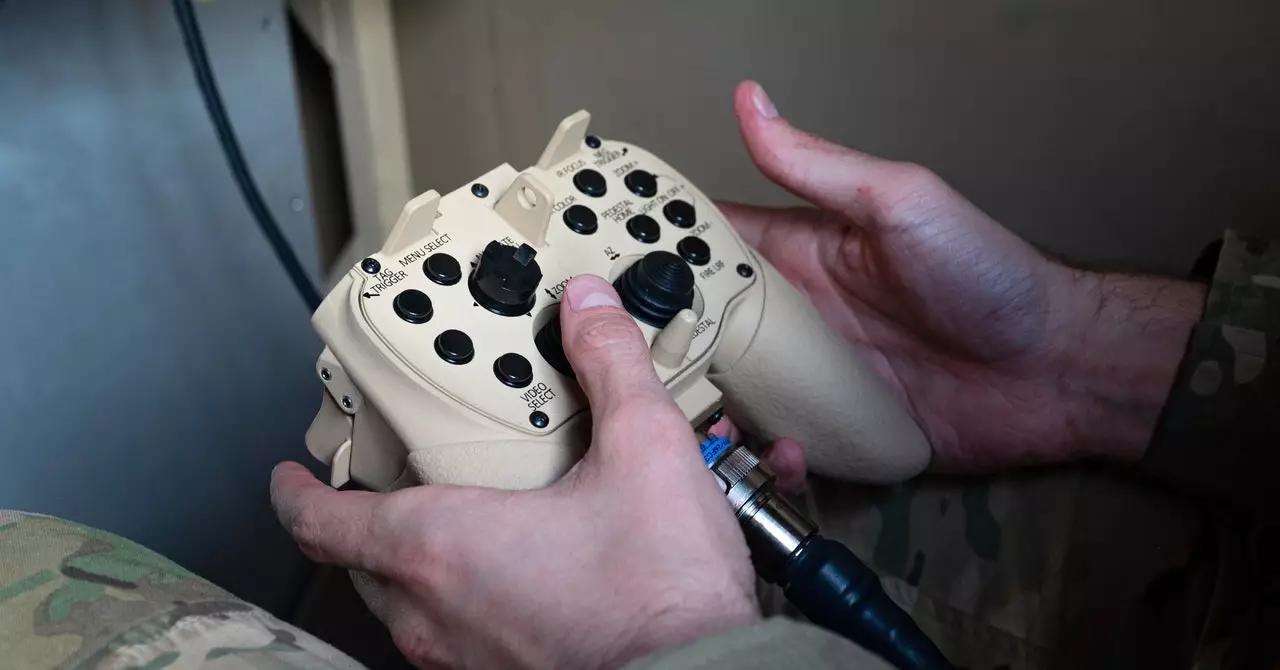In an era where technology plays a pivotal role in military operations, the United States is witnessing a remarkable shift in how combat systems are controlled. Gone are the days of cumbersome control panels and complex interfaces. Instead, soldiers of the future will operate advanced war machines using interfaces that resemble the devices familiar to gamers: the Xbox and PlayStation controllers. This transition highlights a broader trend in the military’s embrace of user-friendly technologies to enhance operational efficiency while ensuring that personnel are well-equipped to handle the complexities of modern warfare.
The integration of the Freedom of Movement Control Unit (FMCU)—an innovative, ruggedized controller developed by Measurement Systems Inc. (MSI)—into various military platforms is a testament to this revolution. The FMCU has already found applications across a range of systems designed for different branches of the U.S. military. For instance, the Navy Marine Corps Expeditionary Ship Interdiction System (NMESIS) utilizes the FMCU for anti-ship missile operations, pivotal for countering potential threats in the Indo-Pacific region.
Furthermore, the Army’s Maneuver-Short Range Air Defense (M-SHORAD) system, brimming with advanced armaments, represents another significant milestone in the military’s technological evolution. The decision to utilize a controller resembling a gaming interface makes it easier for military personnel—often comprised of younger soldiers familiar with such technology—to operate complex weaponry effectively.
The transition to using devices that resemble commercial gaming controllers is not merely a stylistic change; it also vastly improves operability. As young soldiers increasingly become digital natives, adopting familiar technology can lead to an immediate increase in proficiency. The capabilities of the FMCU do not merely replicate existing control paradigms; they are designed for maximum configurability and user adaptability. This feature ensures that operators can swiftly respond to dynamic battlefield conditions, thereby enhancing situational awareness and operational success.
Moreover, the FMCU’s application extends beyond traditional military equipment. Its integration into unmanned systems and experimental vehicles is indicative of the military’s recognition of unmanned technology’s potential in future conflicts. By leveraging the familiarity of a gaming controller, soldiers can control these unmanned vehicles without needing extensive retraining, thus improving efficiency across various operations.
As the military forecasts potential conflicts—such as those involving China in the Pacific or Russia in Eastern Europe—the need for swift and smart deployment of technology is more crucial than ever. The FMCU’s adoption aids in this strategy, allowing for rapid advancements in operational capability. With systems like the AN/SAY-3A Electro-Optic Sensor System, which is vital for future naval vessels, the FMCU’s role becomes central to situational engagement and preemptive threat neutralization.
The ability to integrate sophisticated control systems with advanced weaponry directly supports strategic military goals. This approach also signals to troops that their tools for combat are designed with their realities in mind. When the usability of high-tech systems improves, so does mission readiness and operational effectiveness.
The advent of using gaming-like interfaces in military operations marks a fascinating intersection of consumer technology and defense needs. Ultra, the parent company of Measurement Systems, showcases the FMCU’s adaptability—its rugged construction ensures it can withstand the rigors of diverse combat environments while providing a familiar experience to users trained in the interaction paradigms of gaming.
As defense demands continue to evolve, the military’s commitment to leveraging familiar yet advanced technology will likely dictate future advancements in the field. This evolution is not merely about having the latest gadget; it is a strategic mission to ensure that troops are empowered and equipped to handle the complexities of modern warfare effectively.
The integration of gaming technology into military applications signifies a crucial step forward in modern warfare. It offers insightful implications about how future conflicts will be fought and underscores the necessity of embracing user-friendly innovations that can translate into superior control and enhanced effectiveness on the battlefield.


Leave a Reply